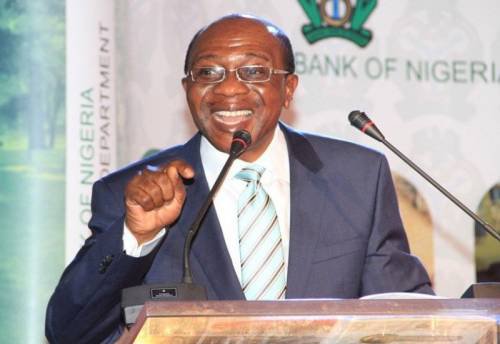Business
EXPOSED! How CBN Deliberately Prevents Naira From Appreciating Against Dollar
The apex bank, which has refused to disclose the exact foreign remittances it has received from 2016 to 2018, deliberately stocks the US dollars it receives on behalf of Nigerians to trade them off through crooked means.
One of the major reasons why the Central Bank of Nigeria has prevented financial institutions in the country from paying United States dollars to persons receiving money from friends and family members based overseas has been uncovered..

According to documents seen by SaharaReporters, the apex bank, which has refused to disclose the exact foreign remittances it has received from 2016 to 2018, deliberately stocks the US dollars it receives on behalf of Nigerians to trade them off through crooked means.
The CBN, it was gathered, was warehousing the dollar component of remittances in foreign banks, thereby making it impossible for the naira to appreciate against the dollar in the foreign exchange market.
Blowing the lid off this seeming goldmine for the CBN leadership, the Femi Falana chambers through Mrs Funmi Falana on February 10, 2020 wrote to the apex bank, demanding to know the accurate remittances for 2016, 2017 and 2018 respectively.
This request, according to the law firm, became necessary after it was discovered that the CBN had quoted a misleading figure in order to downplay the volume of money sent home by Nigerians in the Diaspora.
For instance, in February 2019, the Nigerian Government disclosed that the remittances received in the country in 2016, 2017 and 2018 were $19.6bn, $22bn and $25bn respectively.
However, the management of the Central Bank of Nigeria faulted the figures, going ahead to claim before the House of Representatives’ Committee on Diaspora that contrary to the World Bank’s report, the official financial inflow was $2.6bn for 2018.
Therefore, to the clear the air on the matter, Falana chambers in the letter to the CBN said, “At the 2019 National Diaspora Day held at Abuja in July 2019, the Secretary to the Government of the Federation, Boss Mustapha, revealed that the remittances received by Nigeria stood at $19.6bn, $22bn and $25bn in 2016, 2017 and 2018.
“According to Mr Mustapha, ‘The money is currently utilised as social security funds to families (school fees, feeding allowances, hospital bills and so on). Some of it is invested in housing and estate development, hospital projects, schools and commercial enterprises but are not properly documented and analysed for impact.’
“Springing from the above statement from the Secretary to the Government of the Federation, we request to be furnished with the official figures of remittances received by Nigeria from the Diaspora for 2016, 2017 and 2018.
“Please be informed that this request is anchored on the Freedom of Information Act, 2010.”
But in a response to the request on June 29, 2020, more than four months after the seven days required by law for FoI requests to be responded to, the CBN in a letter signed by its Director of Corporate Secretariat, Mrs C.E Olonta, said it could not respond because the information sought was already on its website.
Further findings by SaharaReporters revealed that even though all remittances are recorded by the CBN on a daily basis, the management has refused to disclose the real figures.
“It is pertinent to let the public know that apart from hiding the fact that revenue from remittances are far more than oil revenue, all foreign aids and Foreign Direct Investment, the CBN wants to continue to sabotage the national economy through dubious regulations and that was why it banned banks and other foreign exchange dealers from paying foreign currencies to recipients of foreign remittances.
“Thus, by warehousing the dollar component of remittances in foreign banks, the CBN has made it impossible for the naira to appreciate against the dollar in the foreign exchange market.
“In view of the decision of the Federal Government to mobilise the huge diaspora remittances to serve as a catalyst for economic development in line with the provisions of the Nigerians in Diaspora Commission Act, the CBN should be restrained from hoarding information on the money sent to the country by Nigerians living abroad,” a financial expert with deep knowledge of the fraud going on in the apex revealed.
-

 Celebrity Gossip & Gist1 day ago
Celebrity Gossip & Gist1 day ago“The money wey dem pay me don expire” – Moment Burna Boy stops his performance at the Oando PLC end of the year party (Video)
-

 Economy1 day ago
Economy1 day agoGoods worth millions of naira destroyed as fire guts spare parts market in Ibadan
-

 Celebrity Gossip & Gist8 hours ago
Celebrity Gossip & Gist8 hours agoMoment stage collapses on Odumodublvck during concert performance (Video)
-

 Economy7 hours ago
Economy7 hours agoPresident Tinubu cancels Lagos engagements in honor of food stampede victims




